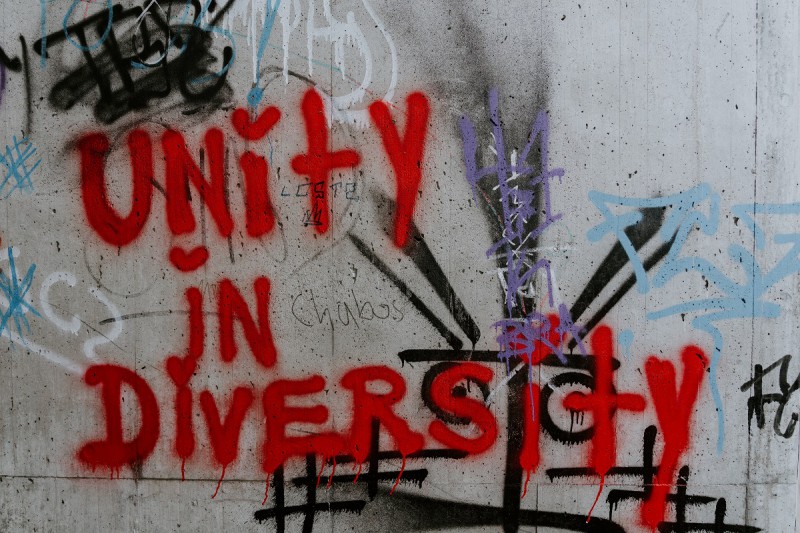Intercultural Development at Emmanuel College

Interculturality is an important dimension of professional development. It is also embedded in the spiritual and social justice values of The United Church of Canada, which "strives to become an intercultural church to deepen our understandings and experiences of God and of one another.” The multireligious setting of the academic programs at Emmanuel College has made it especially important for students to learn and begin to practice intercultural effectiveness in their course of study.
In 2019, Emmanuel College received a resource grant to begin engaging the “Intercultural Development Inventory® (IDI®),” which, according to the organization’s website, “assesses intercultural competence—the capability to shift cultural perspective and appropriately adapt behavior to cultural differences and commonalities.” Faculty and staff led the way. Several faculty members received training as qualified administrators, with Dr. Néstor Medina piloting the inventory with the faculty at their fall retreat and with staff and students at the fall student colloquium.
In 2020, the College formally integrated the Intercultural Development Inventory® into a new course for the first-year cohort, “Multireligious Theological Education and Leadership.” Each student in the entering class completes the Inventory before beginning the course. Early in the semester, the class learns about the orientation of their cohort toward intercultural development on a matrix that includes denial, polarization, minimization, acceptance and adaptation. They learn to define culture and intercultural competence, understand the developmental orientations in the Intercultural Developmental Continuum, and discuss this cohort’s orientation on the Continuum.
Students are also invited to undergo a confidential 45 to 60-minute debriefing session with a qualified administrator of the IDI® in which they learn about their own developmental orientation and discuss an intercultural development plan. They reflect on their development and goals over the semester through a Personal Intercultural Development Project.
Students have found the framework to be helpful for building community, understanding their experiences of culture and supporting one another in their formation. Sylvia Mohanraj, a rising second-year student (MPS–Christian focus), has spearheaded an intercultural development chat for Emanual students. This is what she says of the initiative:
"At the start of the school year, I created a Discord server for Emmanuel College students to gather online in a student-only space, and we have built an engaged and supportive community there (50 members strong)! Part of what we have been doing is hosting intercultural development chats (five events so far) where we get together in small groups and work through some of our experiences and challenges with interculturality.
I developed this list of goals as starting points for our discussions and a lot of really great conversations have come out of them!
GOALS:
- Locating and articulating personal cultural positioning
- Sharing and unpacking feelings associated with significant intercultural life experiences
- Identifying personal hesitations, weaknesses, blind spots in specific intercultural situations
- Practice deep listening/suspending judgment
- Practice compassionate curiosity, actively asking questions and fostering a deeper understanding of unfamiliar topics/cultures"
Emanuel professors find the intercultural education framework beneficial in pedagogical, research and community settings. Following the murder of George Floyd, IDI®, LLC, Inc., which has its headquarters in Minneapolis, offered a five-week course for qualified administrators on using the IDI® for racial justice. Professor Pam Couture, Emmanuel College’s Jane and Geoffrey Martin Chair of Church and Community, found the course transformative as it afforded her new insights into the ways that her own "teaching could be improved when guided by some ideas about where communities situated themselves developmentally on the continuum.”
For Professor Néstor Medina Emm 0T8, IDI® constitutes an important tool of self-reflective engagement with the potential to build intercultural relationships:
"The IDI® is not a formula for developing intercultural relationships or building interculturality in diverse communities. It is a tool that helps those involved become better aware of their orientation toward cultural diversity and provides them with insights of some of the things they need to keep in mind as they work toward becoming more interculturally competent. In other words, IDI® encompasses a self-reflective engagement of one’s own attitudes and potential misconceptions of how to engage cultural diversity. This set of skills relative to cultural diversity can also be incorporated in learning to deal with religious diversity and plurality. Though not synonymous, religious plurality and cultural diversity are intertwined, and both require a similar self-reflective engagement."
Professor Natalie Wigg-Stevenson finds that the intercultural approach, though at times challenging, can facilitate an important space for mutual learning, community building and self-reflexivity:
"I hadn’t anticipated how meaningful debriefing our students would be. I’ve gotten to engage with students who embody almost every orientation along the spectrum, and each one has brought deeper insight into who are at Emmanuel. Sometimes engaging with intercultural work can feel alienating for students, even causing them to feel shame and frustration in ways that lead them to disengage. Through one-on-one conversations with the students using the developmental continuum as a guide, we were able to dig into their responses, motivations, exuberance for or resistance to intercultural experience in ways that helped them then actually want to stay connected when things got tough. I also experienced a lot of mutual learning with our debriefs, as they helped me come to understand and work with my own orientation more too."
